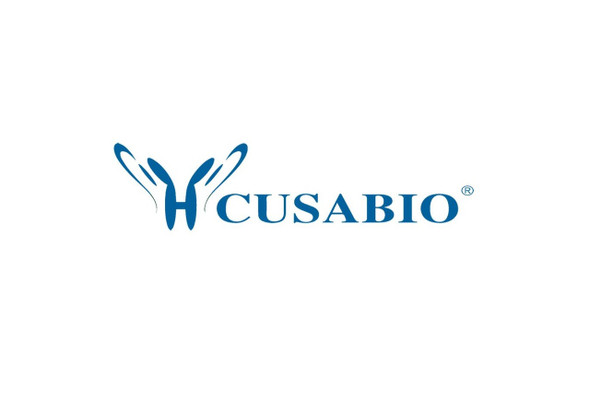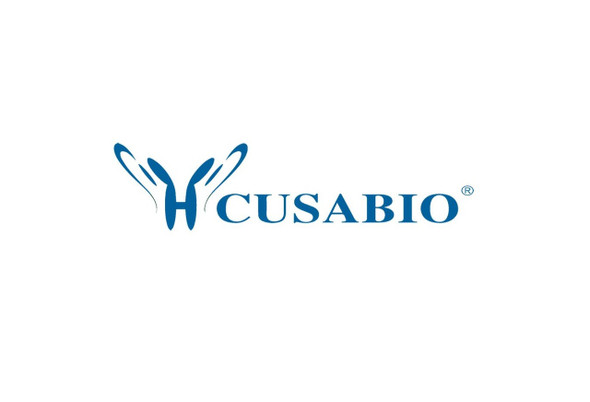Cusabio Virus & Bacteria Recombinants
Recombinant Human papillomavirus type 52 Protein E7 (E7) | CSB-EP339740HNY
- SKU:
- CSB-EP339740HNY
- Availability:
- 3 - 7 Working Days
Description
Recombinant Human papillomavirus type 52 Protein E7 (E7) | CSB-EP339740HNY | Cusabio
Alternative Name(s): E7Protein E7
Gene Names: E7
Research Areas: Others
Organism: Human papillomavirus type 52
AA Sequence: MRGDKATIKDYILDLQPETTDLHCYEQLGDSSDEEDTDGVDRPDGQAEQATSNYYIVTYCHSCDSTLRLCIHSTATDLRTLQQMLLGTLQVVCPGCARL
Source: E.coli
Tag Info: N-terminal 6xHis-SUMO-tagged
Expression Region: 1-99aa
Sequence Info: Full Length
MW: 27 kDa
Purity: Greater than 90% as determined by SDS-PAGE.
Relevance: E7 protein has both transforming and trans-activating activities. Disrupts the function of host retinoblastoma protein RB1/pRb, which is a key regulator of the cell cycle. Induces the disassbly of the E2F1 transcription factors from RB1, with subsequent transcriptional activation of E2F1-regulated S-phase genes. Inactivation of the ability of RB1 to arrest the cell cycle is critical for cellular transformation, uncontrolled cellular growth and proliferation induced by viral infection. Stimulation of progression from G1 to S phase allows the virus to efficiently use the cellular DNA replicating machinery to achieve viral genome replication. Interferes with histone deacetylation mediated by HDAC1 and HDAC2, leading to activation of transcription .
Reference: Interactions of SV40 large T antigen and other viral proteins with retinoblastoma tumour suppressor.Lee C., Cho Y.Rev. Med. Virol. 12:81-92(2002)
Storage: The shelf life is related to many factors, storage state, buffer ingredients, storage temperature and the stability of the protein itself. Generally, the shelf life of liquid form is 6 months at -20?/-80?. The shelf life of lyophilized form is 12 months at -20?/-80?.
Notes: Repeated freezing and thawing is not recommended. Store working aliquots at 4? for up to one week.
Function: Plays a role in viral genome replication by driving entry of quiescent cells into the cell cycle. Stimulation of progression from G1 to S phase allows the virus to efficiently use the cellular DNA replicating machinery to achieve viral genome replication. E7 protein has both transforming and trans-activating activities. Induces the disassembly of the E2F1 transcription factor from RB1, with subsequent transcriptional activation of E2F1-regulated S-phase genes. Interferes with host histone deacetylation mediated by HDAC1 and HDAC2, leading to transcription activation. Plays also a role in the inhibition of both antiviral and antiproliferative functions of host interferon alpha. Interaction with host TMEM173/STING impairs the ability of TMEM173/STING to sense cytosolic DNA and promote the production of type I interferon (IFN-alpha and IFN-beta).
Involvement in disease:
Subcellular Location: Host cytoplasm, Host nucleus
Protein Families: Papillomaviridae E7 protein family
Tissue Specificity:
Paythway:
Form: Liquid or Lyophilized powder
Buffer: If the delivery form is liquid, the default storage buffer is Tris/PBS-based buffer, 5%-50% glycerol. If the delivery form is lyophilized powder, the buffer before lyophilization is Tris/PBS-based buffer, 6% Trehalose, pH 8.0.
Reconstitution: We recommend that this vial be briefly centrifuged prior to opening to bring the contents to the bottom. Please reconstitute protein in deionized sterile water to a concentration of 0.1-1.0 mg/mL.We recommend to add 5-50% of glycerol (final concentration) and aliquot for long-term storage at -20?/-80?. Our default final concentration of glycerol is 50%. Customers could use it as reference.
Uniprot ID: P36831
HGNC Database Link: N/A
UniGene Database Link: N/A
KEGG Database Link: N/A
STRING Database Link: N/A
OMIM Database Link: N/A









